-
 Bitcoin
Bitcoin $114400
0.68% -
 Ethereum
Ethereum $3550
2.48% -
 XRP
XRP $3.001
4.99% -
 Tether USDt
Tether USDt $0.9999
0.01% -
 BNB
BNB $757.6
1.46% -
 Solana
Solana $162.9
1.07% -
 USDC
USDC $0.9998
0.00% -
 TRON
TRON $0.3294
0.91% -
 Dogecoin
Dogecoin $0.2015
2.46% -
 Cardano
Cardano $0.7379
2.01% -
 Stellar
Stellar $0.4141
8.83% -
 Hyperliquid
Hyperliquid $37.83
-1.91% -
 Sui
Sui $3.454
0.76% -
 Chainlink
Chainlink $16.62
3.53% -
 Bitcoin Cash
Bitcoin Cash $554.6
2.84% -
 Hedera
Hedera $0.2486
3.91% -
 Ethena USDe
Ethena USDe $1.001
0.00% -
 Avalanche
Avalanche $21.95
3.34% -
 Toncoin
Toncoin $3.563
-2.85% -
 Litecoin
Litecoin $112.7
2.65% -
 UNUS SED LEO
UNUS SED LEO $8.977
0.13% -
 Shiba Inu
Shiba Inu $0.00001232
1.85% -
 Uniswap
Uniswap $9.319
2.93% -
 Polkadot
Polkadot $3.632
1.38% -
 Monero
Monero $307.2
2.36% -
 Dai
Dai $0.9997
-0.03% -
 Bitget Token
Bitget Token $4.340
0.91% -
 Pepe
Pepe $0.00001048
1.07% -
 Cronos
Cronos $0.1348
3.26% -
 Aave
Aave $261.5
1.93%
How does NFT Gaming change the traditional gaming economy?
NFT gaming disrupts traditional gaming by introducing player-owned, tradable in-game assets via blockchain, creating new revenue streams through play-to-earn models and vibrant secondary markets, but also introducing risks like market volatility and scams.
Mar 01, 2025 at 08:48 pm
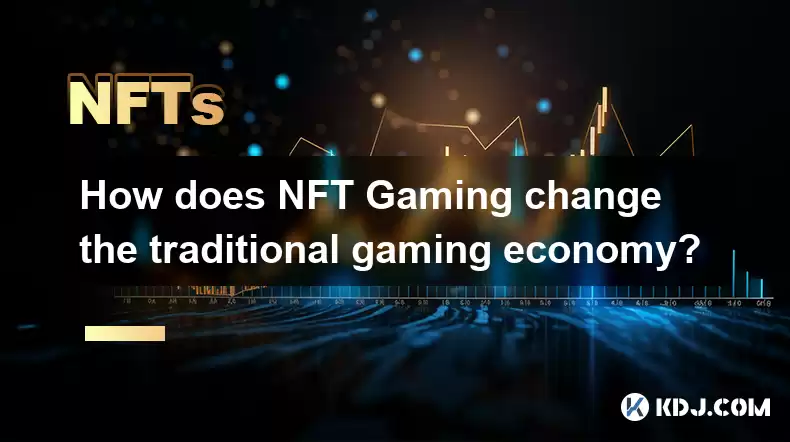
Key Points:
- NFTs introduce ownership and scarcity to in-game assets, altering the traditional model of renting access.
- Play-to-earn (P2E) mechanics create new revenue streams for players, blurring lines between gaming and work.
- NFT marketplaces foster a secondary market for in-game items, generating value beyond the game itself.
- Blockchain technology enhances transparency and security in asset management and transactions.
- Interoperability between games is facilitated, allowing asset transfer across different platforms.
- The shift impacts game developers, publishers, and players, requiring adaptation and new strategies.
How Does NFT Gaming Change the Traditional Gaming Economy?
Traditional gaming economies primarily revolve around the sale of games and in-game purchases. Players typically rent access to game worlds and their assets. Ownership is illusory; the game developer or publisher controls all assets. NFT gaming disrupts this paradigm by introducing true ownership via non-fungible tokens. This fundamentally alters the player-developer relationship and reshapes economic incentives.
The introduction of NFTs transforms in-game items into unique, verifiable digital assets. These assets are not merely cosmetic enhancements; they represent genuine ownership, provable on a public blockchain. This ownership allows players to buy, sell, and trade these assets on NFT marketplaces, creating a vibrant secondary market that extends beyond the game's lifespan.
Play-to-earn (P2E) mechanics are a core element of many NFT games. Unlike traditional games where progress is primarily for personal enjoyment, P2E games allow players to earn cryptocurrency or NFTs by playing. This generates a tangible financial incentive, blurring the lines between gaming and work, and attracting a new demographic of players motivated by financial gain.
Blockchain technology provides the underlying infrastructure for NFT gaming. This offers several advantages over traditional gaming systems. The transparency of the blockchain ensures that all transactions are publicly auditable, reducing the risk of fraud and manipulation. Furthermore, the immutable nature of blockchain data guarantees the authenticity and ownership of NFTs.
Interoperability is another significant change brought about by NFT gaming. In traditional gaming, assets are typically confined to a single game. NFT gaming, however, aims for cross-game compatibility, allowing players to transfer their assets between different games. This creates a more interconnected and fluid gaming ecosystem. Imagine using your prized sword from one game in another, seamlessly integrating your progress and assets.
The shift to NFT gaming presents both opportunities and challenges for game developers and publishers. Developing and maintaining NFT games requires a different skill set and infrastructure compared to traditional game development. They need to navigate the complexities of blockchain technology, NFT marketplaces, and the regulatory landscape surrounding cryptocurrencies. Furthermore, the economics of NFT games often require careful design to avoid creating unsustainable or exploitative systems.
How are players affected by the shift to NFT gaming?
Players now have true ownership of in-game assets, enabling them to participate in a secondary market. This creates new revenue streams, but also introduces risks associated with market volatility and potential scams. Players must understand the risks and rewards before investing time and resources in NFT games.
The introduction of P2E mechanics alters the player experience. While offering financial incentives, it can also lead to a focus on profit maximization rather than pure enjoyment. The balance between fun and financial gain is a crucial aspect of successful P2E games. Furthermore, some games have been criticized for their potentially exploitative mechanics.
How does NFT gaming affect the overall gaming industry?
The integration of NFTs is transforming the gaming industry's economic model, moving from a primarily centralized system to a more decentralized one. This impacts game development, marketing, and community building, requiring adaptations across the board.
Frequently Asked Questions:
Q: What are the risks associated with NFT gaming?
A: The cryptocurrency market is inherently volatile. The value of in-game NFTs can fluctuate significantly, leading to potential losses for players. Scams and fraudulent projects are also prevalent in the NFT space. Players should exercise caution and thoroughly research any game or NFT before investing.
Q: Is NFT gaming sustainable in the long term?
A: The long-term sustainability of NFT gaming depends on several factors, including the continued growth of the cryptocurrency market, the development of more engaging and sustainable game economies, and the adoption of regulatory frameworks. The current landscape is still evolving, and it remains uncertain whether the current models will prove sustainable in the long run.
Q: How do I get started with NFT gaming?
A: To begin, research different NFT games. Understand the game's mechanics, the value of its in-game assets, and the potential risks involved. You will need a cryptocurrency wallet to store your NFTs and interact with the game's blockchain. Research and choose a reputable wallet. You will also need to acquire cryptocurrency to purchase in-game NFTs. Remember to always practice safe crypto handling practices.
Q: What is the difference between traditional gaming and NFT gaming?
A: Traditional gaming operates on a rental model; players don't truly own in-game assets. NFT gaming uses blockchain technology to give players verifiable ownership of digital assets, enabling trading and creating a secondary market.
Q: Are all NFT games play-to-earn?
A: No, while many NFT games incorporate play-to-earn mechanics, not all do. Some NFT games focus on the ownership and trading of digital assets without direct financial incentives for gameplay.
Q: What are the ethical considerations of NFT gaming?
A: Ethical concerns include the potential for exploitative gameplay loops, environmental impact due to energy consumption of certain blockchains, and the risk of scams and fraudulent projects targeting players. Responsible game design and regulation are crucial to mitigate these risks.
Disclaimer:info@kdj.com
The information provided is not trading advice. kdj.com does not assume any responsibility for any investments made based on the information provided in this article. Cryptocurrencies are highly volatile and it is highly recommended that you invest with caution after thorough research!
If you believe that the content used on this website infringes your copyright, please contact us immediately (info@kdj.com) and we will delete it promptly.
- Cryptocurrency, Altcoins, and Profit Potential: Navigating the Wild West
- 2025-08-04 14:50:11
- Blue Gold & Crypto: Investing Disruption in Precious Metals
- 2025-08-04 14:30:11
- Japan, Metaplanet, and Bitcoin Acquisition: A New Era of Corporate Treasury?
- 2025-08-04 14:30:11
- Coinbase's Buy Rating & Bitcoin's Bold Future: A Canaccord Genuity Perspective
- 2025-08-04 14:50:11
- Coinbase's Buy Rating Maintained by Rosenblatt Securities: A Deep Dive
- 2025-08-04 14:55:11
- Cryptos, Strategic Choices, High Returns: Navigating the Meme Coin Mania
- 2025-08-04 14:55:11
Related knowledge
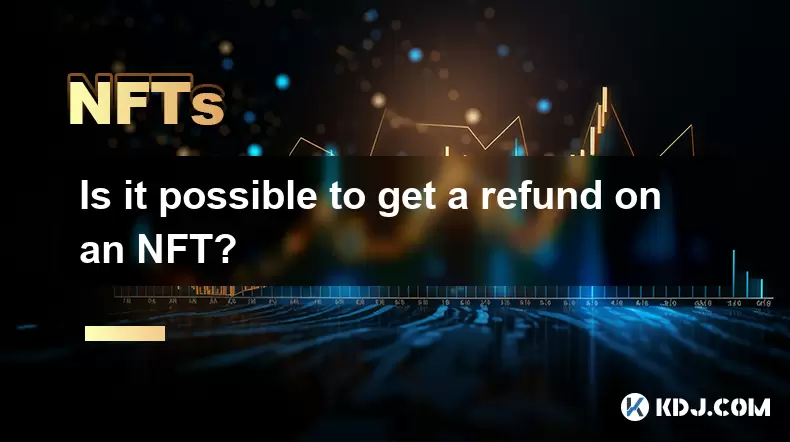
Is it possible to get a refund on an NFT?
Jul 21,2025 at 08:35pm
Understanding NFT Transactions and RefundsWhen you purchase an NFT (Non-Fungible Token), the transaction is typically recorded on a blockchain, making...
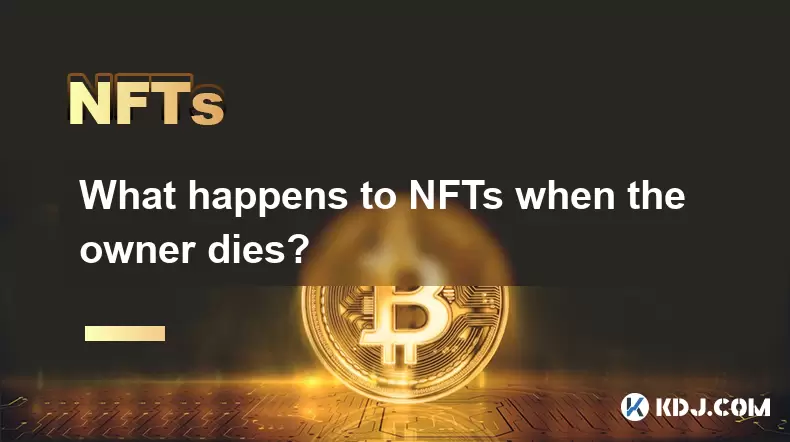
What happens to NFTs when the owner dies?
Jul 22,2025 at 02:43pm
Legal Ownership and Digital AssetsWhen an individual owns NFTs, the question of what happens to these assets upon their death is a pressing one. NFTs ...
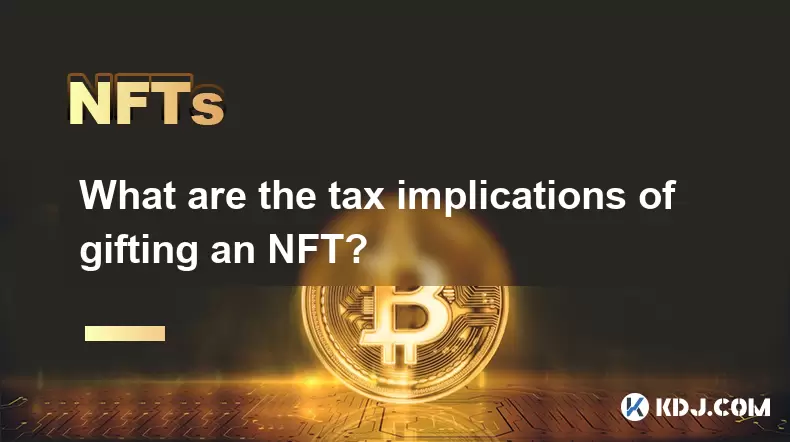
What are the tax implications of gifting an NFT?
Jul 19,2025 at 04:21am
Understanding the Basics of NFT GiftingGifting a Non-Fungible Token (NFT) involves transferring ownership from one individual to another without recei...
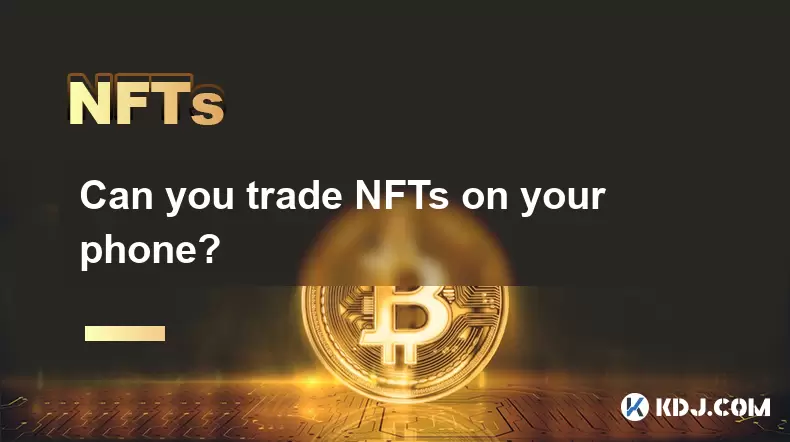
Can you trade NFTs on your phone?
Jul 18,2025 at 04:29am
Trading NFTs on Mobile DevicesYes, you can trade NFTs on your phone, and the process has become increasingly streamlined thanks to a variety of mobile...
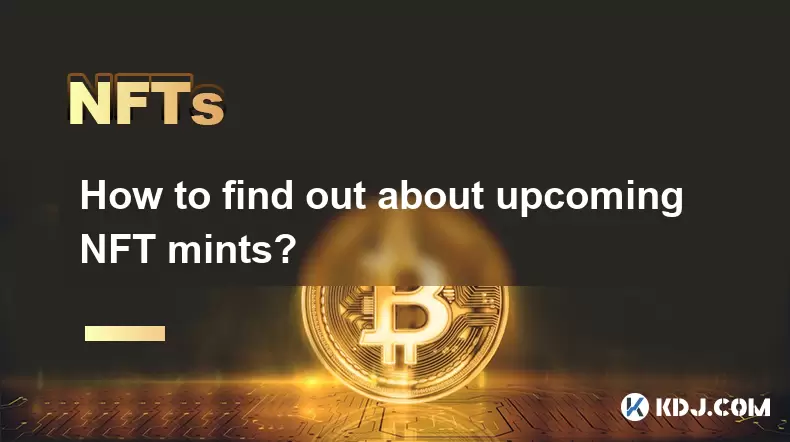
How to find out about upcoming NFT mints?
Jul 18,2025 at 11:50am
Exploring NFT Minting OpportunitiesUnderstanding the landscape of upcoming NFT mints is crucial for collectors, investors, and creators who wish to st...
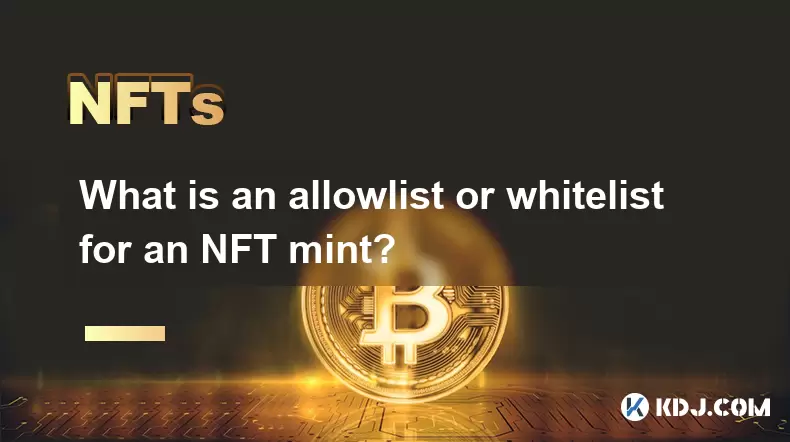
What is an allowlist or whitelist for an NFT mint?
Jul 20,2025 at 07:14pm
Understanding the Concept of an Allowlist for NFT MintingAn allowlist, also commonly referred to as a whitelist, is a mechanism used in the NFT mintin...

Is it possible to get a refund on an NFT?
Jul 21,2025 at 08:35pm
Understanding NFT Transactions and RefundsWhen you purchase an NFT (Non-Fungible Token), the transaction is typically recorded on a blockchain, making...

What happens to NFTs when the owner dies?
Jul 22,2025 at 02:43pm
Legal Ownership and Digital AssetsWhen an individual owns NFTs, the question of what happens to these assets upon their death is a pressing one. NFTs ...

What are the tax implications of gifting an NFT?
Jul 19,2025 at 04:21am
Understanding the Basics of NFT GiftingGifting a Non-Fungible Token (NFT) involves transferring ownership from one individual to another without recei...

Can you trade NFTs on your phone?
Jul 18,2025 at 04:29am
Trading NFTs on Mobile DevicesYes, you can trade NFTs on your phone, and the process has become increasingly streamlined thanks to a variety of mobile...

How to find out about upcoming NFT mints?
Jul 18,2025 at 11:50am
Exploring NFT Minting OpportunitiesUnderstanding the landscape of upcoming NFT mints is crucial for collectors, investors, and creators who wish to st...

What is an allowlist or whitelist for an NFT mint?
Jul 20,2025 at 07:14pm
Understanding the Concept of an Allowlist for NFT MintingAn allowlist, also commonly referred to as a whitelist, is a mechanism used in the NFT mintin...
See all articles

























































































